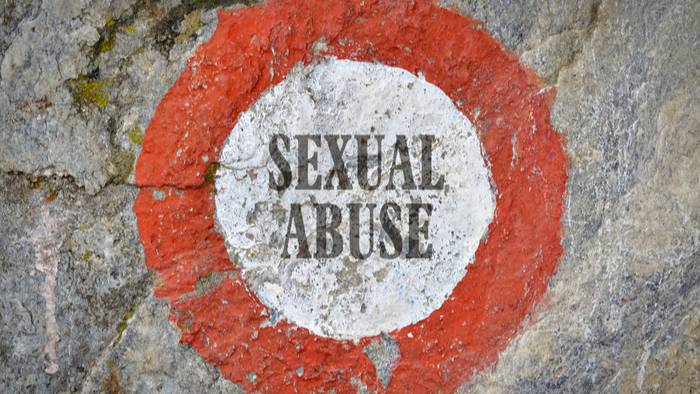
Sexual trauma comes with its subjective struggles and victims often find themselves helpless due to lack of debate on the subject. Thus, the survivor’s emotions should be prioritised in preventative and rehabilitation strategies. They should be prioritised in civil society campaigns against child sexual abuse, media reporting, etc.
The criteria for appropriate responses to sexual trauma need to be revisited in order to debunk some deeply-ingrained and widespread misconceptions so that a corrective approach towards sexual abuse campaign can be adopted. Victims of sexual abuse are simultaneously survivors and sufferers of the trauma. The flexibility of these socially-ordained labels contains the necessary complexity of the experience.
In order to understand the best way to help the sexual abuse victims, we need to try our best to understand them.
Empathising is a necessary – though somewhat painful – tool to venture onto the struggle of understanding their perspective and experience.
Stop Telling Survivors To ‘Be Grateful’
Firstly, and most importantly, the degrees of trauma should not be compared. A trauma victim should not be comforted by pointing out the worse outcomes they escaped. Factoring in the much-needed empathy, we wouldn’t like it if we are told to count our blessings and be glad to be alive after losing a job.
The pain of a loss doesn’t go away by being reminded of the losses that have been avoided. A sexual trauma survivor has had their most intimate space violated, and are forced into a mixture of shame, disgust, and betrayal. When their suffering is denied by pointing out reasons they should be grateful, they increasingly start doubting the validity of their pain and blaming themselves for feeling it intensely.
Acknowledge The Pain
Secondly, the one thing that all sexual abuse survivors need is the validation of their pain. An appropriate response should always contain some verbal acknowledgment of the existential pain they are going through since it automatically makes the survivor feel comfortable and safe to know that it isn’t a risk to be vulnerable with the intensity of their pain.
Thirdly, there needs to be a deeper understanding of the nature and impacts of triggers. Triggers are a psycho-somatic response to any physical reminders of the abuse. These physical reminders can be as diverse as our fingerprints and can range from a smell to a movement. No matter how trivial they sound, they are an unpleasant day-to-day reality for several sexual abuse victims, and thus should never be rejected.
‘Trigger’ is, unfortunately, part of the popular millennial vernacular misappropriated to highlight any sudden unpleasant response rather than the medically-diagnosed implications of this word. This integration, similar to the everyday out-of-place use of ‘depression’, cultivates a dismissive social reaction to the trigger terminology – and thus should be re-evaluated.
A significant contributor to sexual trauma is the social reaction to it, and thus our words and responses matter. They can determine the time period needed to heal from the violation, and with a little bit of understanding, can provide much-needed comfort to the alienated survivors.
The criteria for appropriate responses to sexual trauma need to be revisited in order to debunk some deeply-ingrained and widespread misconceptions so that a corrective approach towards sexual abuse campaign can be adopted. Victims of sexual abuse are simultaneously survivors and sufferers of the trauma. The flexibility of these socially-ordained labels contains the necessary complexity of the experience.
In order to understand the best way to help the sexual abuse victims, we need to try our best to understand them.
Empathising is a necessary – though somewhat painful – tool to venture onto the struggle of understanding their perspective and experience.
Stop Telling Survivors To ‘Be Grateful’
Firstly, and most importantly, the degrees of trauma should not be compared. A trauma victim should not be comforted by pointing out the worse outcomes they escaped. Factoring in the much-needed empathy, we wouldn’t like it if we are told to count our blessings and be glad to be alive after losing a job.
The pain of a loss doesn’t go away by being reminded of the losses that have been avoided. A sexual trauma survivor has had their most intimate space violated, and are forced into a mixture of shame, disgust, and betrayal. When their suffering is denied by pointing out reasons they should be grateful, they increasingly start doubting the validity of their pain and blaming themselves for feeling it intensely.
Acknowledge The Pain
Secondly, the one thing that all sexual abuse survivors need is the validation of their pain. An appropriate response should always contain some verbal acknowledgment of the existential pain they are going through since it automatically makes the survivor feel comfortable and safe to know that it isn’t a risk to be vulnerable with the intensity of their pain.
Thirdly, there needs to be a deeper understanding of the nature and impacts of triggers. Triggers are a psycho-somatic response to any physical reminders of the abuse. These physical reminders can be as diverse as our fingerprints and can range from a smell to a movement. No matter how trivial they sound, they are an unpleasant day-to-day reality for several sexual abuse victims, and thus should never be rejected.
‘Trigger’ is, unfortunately, part of the popular millennial vernacular misappropriated to highlight any sudden unpleasant response rather than the medically-diagnosed implications of this word. This integration, similar to the everyday out-of-place use of ‘depression’, cultivates a dismissive social reaction to the trigger terminology – and thus should be re-evaluated.
A significant contributor to sexual trauma is the social reaction to it, and thus our words and responses matter. They can determine the time period needed to heal from the violation, and with a little bit of understanding, can provide much-needed comfort to the alienated survivors.
